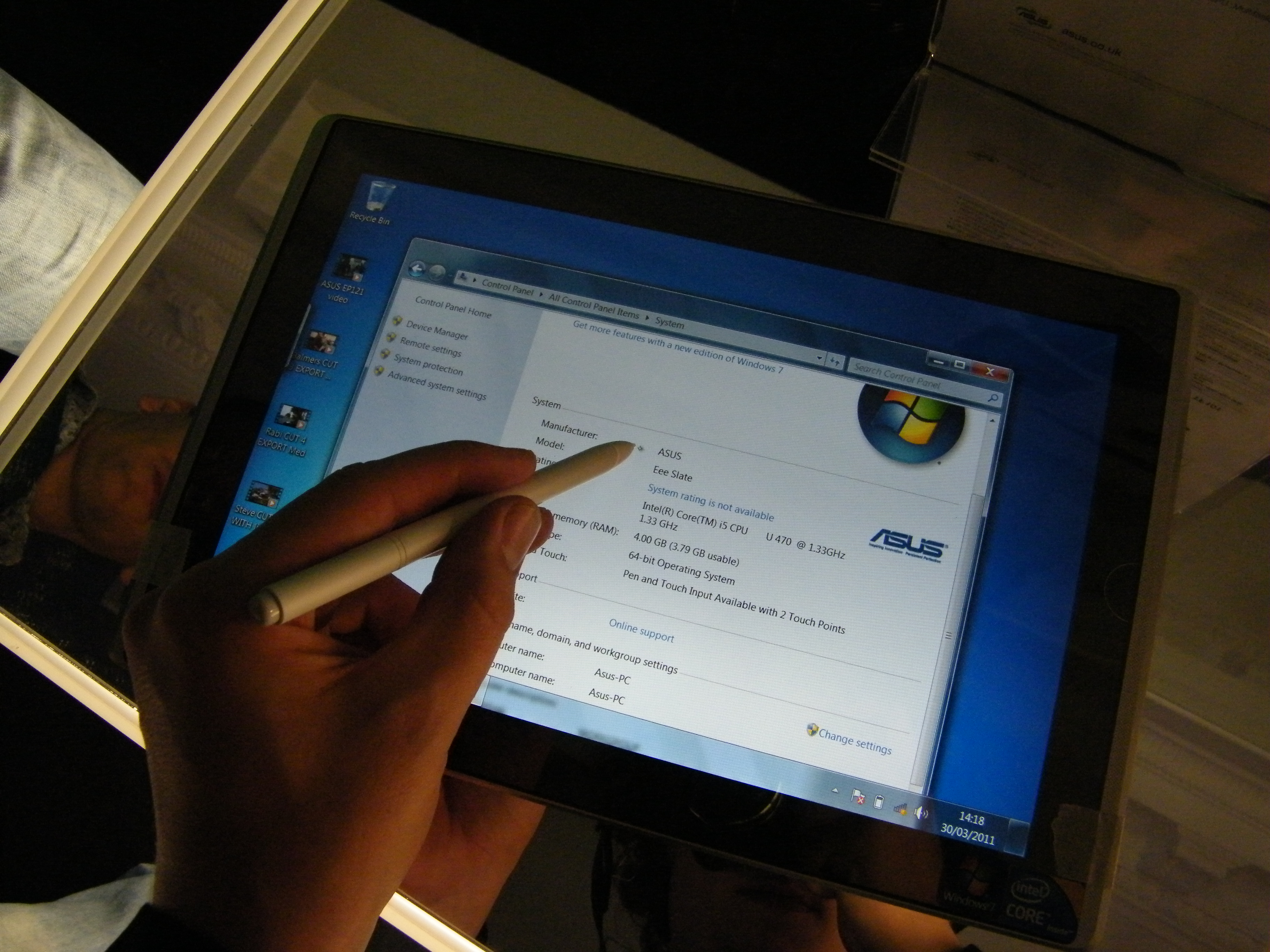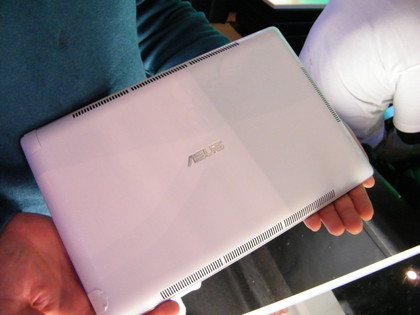Asus: Windows 7 is a tablet-friendly OS
12-inch Eee Slate EP121 first of many Win 7 tablets from Asus

Asus has insisted that it is committed to building Windows 7 tablets and sees the Microsoft OS as a worthy competitor to Android and Apple's iOS.
Asus' Julie Cheng told TechRadar at the UK launch of the Eee Pad Transformer in London this week that the company gets 'a lot' of enquiries from people who don't want Apple or Android.
While many people, including writers on this site, have given Windows 7 a bit of a kicking as a touch OS in recent times, Asus told TechRadar that there is a demand for Windows 7 tablets and that it will continue to make them while that demand exists, no matter what.
"We're making Windows 7 tablets because we still get a lot of enquiries from corporate and end users who are just used to Windows," said Cheng, product management specialist at Asus.
"They don't want Apple and they don't want Android because they just simply want Windows - they're used to it. There are still demands for Windows solutions."
Asus' first major Windows 7 tablet is the Eee Slate EP121, a 12-inch, heavyweight beast of a tablet which squeezes an Intel Core i5-470UM CPU and 4GB RAM into a unit which weighs 1.16Kg and costs about a thousand quid.

Clearly, this device is not designed to compete with affordable 'consumption tablets' like Asus' own marvellous Eee Pad Transformer, an Android 3.0 tablet which goes on sale next week and starts at just £379.
Get daily insight, inspiration and deals in your inbox
Sign up for breaking news, reviews, opinion, top tech deals, and more.
So is it fair to bash Windows 7 as a touch OS for tablets? We still think it is, but Asus says not.
"Current competition, everyone is focusing on Android so we believe there are more sales on Android," Cheng says, "but we still want to have a Windows solution for those who really can't use other OS's. We don't expect big sales like for the Android tablets, but we still want to have a product like this in our line-up."
This seems like a perfectly reasonable argument to us, but the fact remains that Windows 7 is not an operating system that was put together with tablets in mind.
You need only look at our recent review of the just about passable Acer Iconia Tab W500 to see the problems you get when trying to navigate Windows using your fingers on a small screen. Touch is supposed to speed up your consumption of information, but in our experience with Windows on tablets, it actually slows you down.
Different route
However, Asus has taken a different route to Acer in this regard, in that it has limited Windows to use on its largest tablet.
While Acer's Iconia Tab W500 has a 10.1-inch screen, the EP121 is much larger at 12 inches – giving your fingers a bit more room for manoeuvre. It also comes with a stylus especially designed for capacitive screens. And even though the EP121 it's so big and frankly, heavy, Asus reckons it has it's own place in the market.
"It provides you with much more mobility [than a laptop], if you don't need your keyboard and mouse when you are on the go, then you can just take the tablet. It's lighter and smaller.
"We wanted to have some sort of differentiation. So there will be a full line-up of tablets in different sizes, with Windows 7 currently being on the 12-inch tablet."
So there you have it. We still don't think Windows 7 is ever going to be a finger friendly OS, but if there really is that much demand for tablets running Windows, maybe that just leaves more Android tablets and iPads for the rest of us.
James was part of the TechRadar editorial team for eight years up until 2015 and now works in a senior position for TR's parent company Future. An experienced Content Director with a demonstrated history of working in the media production industry. Skilled in Search Engine Optimization (SEO), E-commerce Optimization, Journalism, Digital Marketing, and Social Media. James can do it all.
